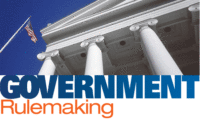There have been some unsettling reports recently of large increases in the number of whistleblower complaints to OSHA related to COVID-19.
On August 14, the U.S. DOL’s Office of the Inspector General released a report titled “COVID-19: OSHA needs to improve its handling of whistleblower complaints during the pandemic.”1 The report states that OSHA received 30 percent more whistleblower complaints from February 1 to May 31 this year compared to the same period in 2019.
The report says: “We found the pandemic has significantly increased the number of whistleblower complaints OSHA has been receiving. OSHA was challenged to complete investigations in a timely manner before the pandemic, and the potential exists for even greater delays now.”
According to investigators, having a maximum of 20 open investigations at one time is optimal, however, investigators are reporting the number of open investigations to be at high as 45.
“The potential exists for even greater delays in closing investigations,” the report says. “Amid this challenge, OSHA needs to improve its handling of whistleblower complaints. When OSHA fails to respond in a timely manner, it could leave workers to suffer emotionally and financially, and may also lead to the erosion of key evidence and witnesses.
“Prior to the pandemic, OSHA began a triage pilot intended to expedite the complaint screening process and also reassigned older complaints from regions with large backlogs to regions with lesser backlogs. However, OSHA had not utilized a similar approach during the pandemic to more evenly distribute whistleblower complaints.”
Despite the vast uptick in cases from 2019 to 2020, OSHA’s full-time employment positions decreased from 126 to 120, the IG said.
The IG Office conducted the audit by interviewing management officials; reviewing complaint data; and studying past audits, relevant news articles and legislation on the pandemic. It recommends that OSHA fill the five whistleblower investigator vacancies, continue to assess the triage pilot program and consider extending it to all regions, and establish a plan to better distribute cases among investigators. OSHA agreed with the recommendations.
Retaliation risk high
In June, the National Employment Law Project (NELP) surveyed more than 1,100 workers nationwide and found that one in eight reported “possible retaliatory actions by employers against workers in their company who have raised health and safety concerns during the pandemic.”2 Black workers were more than twice as likely as their white counterparts to have seen possible retaliation by their employer, and they twice as likely as white workers to indicate having unresolved COVID-related concerns at work.
On the IG’s audit report, Debbie Berkowitz, worker health & safety program director at the NELP, said3, “This report makes it clear that OSHA is failing to protect terrified workers around the country who raised workplace safety concerns during the pandemic, only to be retaliated against by their employer. OSHA has received an unprecedented number of retaliation complaints from workers in this pandemic. Yet, because OSHA has failed to fill whistleblower positions, investigators now face increased caseloads and complainants now face the very real potential for even lengthier delays, with investigations now taking an average of 279 days to complete (up 41 days since the last OIG audit in 2015).”
Workers’ rights
Section 11(c)(1) of the Occupational Safety and Health Act provides that “No person shall discharge or in any manner discriminate against any employee because such employee has filed any complaint or instituted or caused to be instituted any proceeding under or related to this chapter or has testified or is about to testify in any such proceeding or because of the exercise by such employee on behalf of himself or others of any right afforded by this chapter.”
Berkowitz, of the NELP, said: “The Department of Labor must protect every worker’s rights, because too many employers are denying these rights — including the right to speak out on the job for safe and healthy conditions. Worker rights and voice are fundamental to our democracy. The DOL must take its role seriously and ensure every whistleblower claim is expeditiously investigated so that workers are not forced to choose between their health and their economic security.”
References
1. https://www.oig.dol.gov/public/reports/oa/2020/19-20-010-10-105.pdf
3. https://www.nelp.org/news-releases/labor-department-report-workers-speaking-blowing-whistle-covid-safety-violations-complaints-retaliation-face-delays-understaffed-osha/




